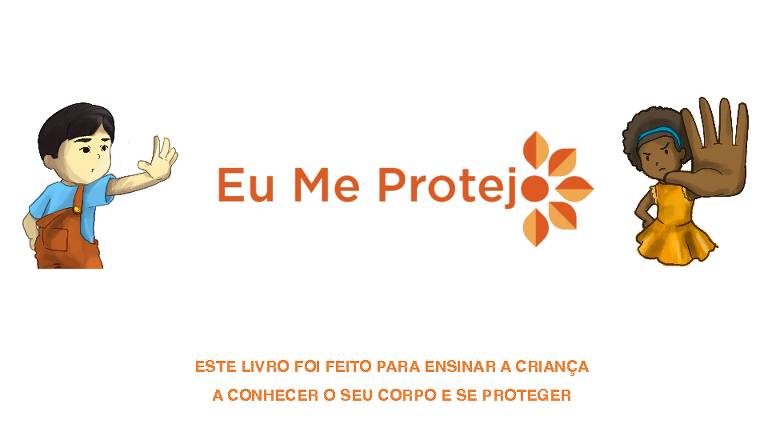Sexual abuse against people with intellectual disabilities can occur without visible clues

In 2023, Brazil recorded a total of 4,465 reports of sexual abuse against people with some type of disability, according to the most recent edition of the Atlas of Violence .
Among them, 2,378 cases involved victims with mental disorders; another 905 had intellectual disabilities, 737 of whom were women. The two groups, combined, represent 74% of all sexual abuse cases against people with some kind of disability .
Identifying cases of sexual abuse against neurodivergent children and adolescents is more difficult, in part due to failures in public policies.

"Most protocols and service flows were built based on parameters aimed at neurotypical children, which makes the instruments less effective for neurodivergent children," says educational psychologist Camila Cotegipe.
In short, a neurotypical child has a neurological pattern similar to that of most people, while a neurodivergent child has some type of variation.
Public Prosecutor of the MP-DFT (Public Ministry of the Federal District and Territories), Camila Britto explains that, although there has been much progress, "not all guardianship councils and police stations have trained personnel to adequately approach neurodivergent children.
"Few units offer sensory rooms or spaces with low stimulation," says Britto, who is part of the Center for Combating Violence and Sexual Exploitation against Children and Adolescents (Nevesca).
Cotegipe believes that interdisciplinary communication is necessary between areas supporting neurodivergent children. "Knowing how to network, working with other healthcare professionals, and understanding protection and reporting protocols is what ensures an effective response."
In addition to the obstacles to care, there's the fact that many signs of sexual abuse—aggression, mutism, and regression—are inherent characteristics of neurodivergences, notes neuropsychologist Silvia Oliveira. When victims of sexual violence experience these traits, they become more pronounced.
"The child will repeat the patterns they already presented, but with more intensity. But, even if their normal behavior is different from that of typical children, they will present signs. When the mouth doesn't speak, the body speaks," he states.
According to her, the effects of sexual abuse on the life of a neurodivergent child are even more devastating. "They begin to suffer from phobias, nightmares, and difficulties in relationships that can last into adulthood."
One example is the story of Marisa (not her real name), who didn't speak her first word until she was almost three years old. At school, she displayed learning difficulties and signs of mild intellectual disability. What people didn't know was that, at home, she suffered continuous abuse from her father.
With each passing year, her functionality declined. At 13, she was the victim of a rape that nearly took her life. After the trauma, Marisa withdrew, and her family noticed that she was no longer responding to everyday situations.
After a medical investigation, it was discovered that the rape, combined with prolonged abuse, caused Marisa's intellectual development to stagnate.
Just like Marisa, her cousin Helena (fictitious name) still carries the after-effects of abuse today, at 22 years old.
She was belatedly diagnosed with autism at support level 1 at age 21. The disorder is classified into three levels of severity: 1 (requires support), 2 (requires substantial support), and 3 (requires very substantial support).
"One day, my uncle came home and kept complimenting me. When it was just me and him downstairs, I felt uncomfortable and went to the living room to sit down. He followed me, sat right next to me, and started kissing my neck, my jaw, moving towards my mouth and getting closer."
"I managed to get up and go to the kitchen, he followed me. That's when I found the strength to run out. I went upstairs and hid behind a cupboard," he recalls.
For nine years, Helena erased her memory. "I didn't think I should keep feeling what I was feeling because it wasn't rape, that's how I imagined it at the time."
When Helena was diagnosed with autism , memories of the trauma came flooding back. "I noticed for the first time my lack of awareness of what was happening, and it was very strong, very aggressive inside my head, it felt like a flood of feelings coming all at once."
For prosecutor Britto, the justice system must adopt measures to protect neurodivergent children who are victims of sexual violence. "The key lies in qualified and sensitive listening, truly accessible procedures, coordination with the protective network, and ongoing training for professionals."
This report is the result of the course on journalistic coverage of child sexual violence promoted by Folha and Instituto Liberta in June 2025.
uol


%2Fhttps%3A%2F%2Fi.s3.glbimg.com%2Fv1%2FAUTH_59edd422c0c84a879bd37670ae4f538a%2Finternal_photos%2Fbs%2F2022%2FN%2Fa%2FnNKHbxSLqBGdl1lSkujw%2Fhungria-hip-hop-div-ed.jpg&w=3840&q=100)
%2Fhttps%3A%2F%2Fi.s3.glbimg.com%2Fv1%2FAUTH_59edd422c0c84a879bd37670ae4f538a%2Finternal_photos%2Fbs%2F2025%2Fk%2FU%2FkcBHygRw2R7xqBx848Xw%2Fadobestock-463156792-1-.jpeg&w=3840&q=100)
%2Fhttps%3A%2F%2Fi.s3.glbimg.com%2Fv1%2FAUTH_59edd422c0c84a879bd37670ae4f538a%2Finternal_photos%2Fbs%2F2025%2Fa%2FA%2FARgriIQpGe18kVBAyk4A%2Fsciadv.adr5199-f4.jpg&w=3840&q=100)
%2Fhttps%3A%2F%2Fi.s3.glbimg.com%2Fv1%2FAUTH_59edd422c0c84a879bd37670ae4f538a%2Finternal_photos%2Fbs%2F2025%2F9%2Fq%2F4kgzOwQkiZHp96A0pfTQ%2Fregional-projeto-maos-falam-31-07-2025.mp4-snapshot-03.25.374.jpg&w=3840&q=100)